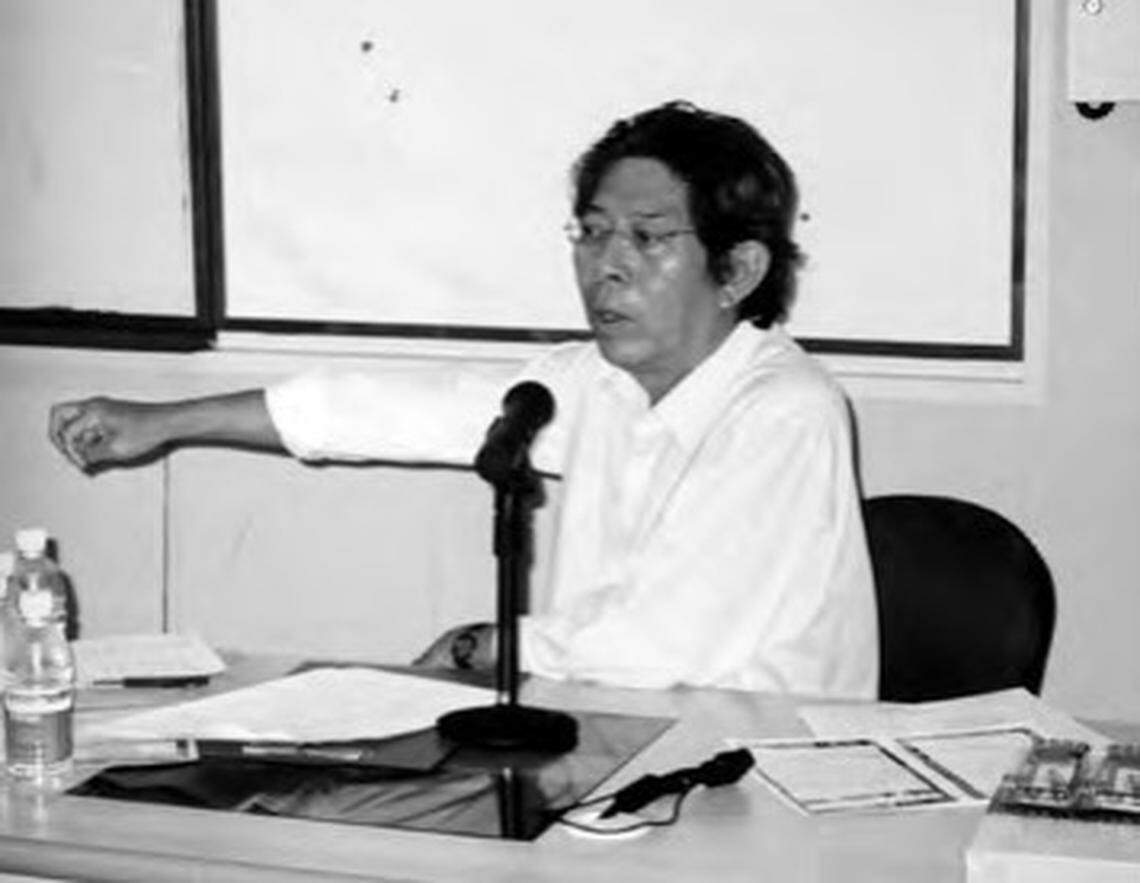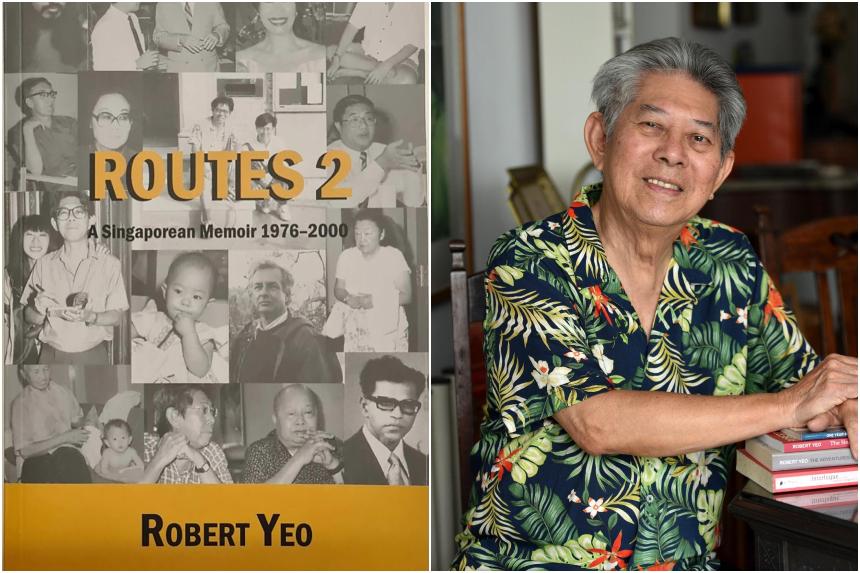SINGAPORE – Robert Yeo takes pride in being both a civil servant and a political writer, and sees no contradiction between his two roles. The 83-year-old pioneer writer has published a new memoir Routes 2.
The candid book, which spans 1976 to 2000, is a window into a period of Yeo’s life when he wrote some of his most political works.
These include the poetry collection And Napalm Does Not Help (1977), which tackled the Vietnam War, and the controversial political drama One Year Back Home (1980), which took 18 months to receive a licence to perform.
At the same time, Yeo chaired the Drama Advisory Committee in the then Ministry of Culture and Ministry of Community Development, and lectured at the National Institute of Education (NIE), advocating a national literary and theatrical culture in Singapore’s early decades of independence.
“As a civil servant, I wouldn’t criticise the Government, whose policies I generally supported. But as a writer, if I felt there were things they did that I did not agree with and were harsh, then I would put them in my writing,” says Yeo in an interview with The Straits Times.
If the earlier Routes (Ethos Books, 2011) is a memoir of roots-seeking, detailing the first 35 years of his life growing up in a Peranakan family and locating his ancestry in Sarawak, Routes 2 finds Yeo a mature man – forging his route as a writer.
He strongly believed there was then a dearth of critical Singapore plays and wrote One Year Back Home – the second play in what would become The Singapore Trilogy, and the first overtly political Singapore play. “I think that is the role of the writer: To be able to express an alternative point of view through his creative writings.”
“When I first broached the idea of staging One Year Back Home, people said, ‘Your career will suffer’,” says Yeo, whose script referred to contemporary politics by staging a tense friendship between Chye, from the People’s Action Party, and Workers’ Party member Fernandez, who was detained for his political activities.
In extensively excerpted letters included in the book, Yeo recalls the ministry had requested for his script to show “a more balanced point of view”. Yeo acquiesced and made revisions to the script, including reframing Fernandez’s arrest as part of his “pro-communist” outlook rather than his status as an opposition party member.
The play was eventually granted a licence in 1980 by then acting minister for culture Ong Teng Cheong, writes Yeo.
Yeo has no regrets making these compromises, adding: “If I remain uncompromising, the plays will never get done. So, I was flexible about making adjustments to accommodate the point of view of the civil servants who saw things rather differently.”
In 1987, when Yeo picked up a copy of ST and learnt that many of his friends – including the playwright Wong Souk Yee – were arrested without trial for an alleged Marxist conspiracy, he felt the need to speak out.
But he feared for his family’s safety and kept silent before realising the contradiction in doing so. “In my capacity as chair of the Drama Advisory Committee, I had told playwrights I met that they should be free to write on any topic they like, that they should not be afraid to take on dissenting themes, that they should not let the Government set the agenda for them when writing.”
In a handwritten letter meant for the Internal Security Department, Yeo spoke of Wong’s ability to “make a further contribution to the working of a Singaporean Theatre”.

When asked if the episode made him worry about writing politics so openly, Yeo is resolute. “No, it did not make me question whether I should be writing about politics. I stand by what I say about politics expressed in The Singapore Trilogy.”
Routes 2, which took close to a decade to compile, is dense with quotations and excerpts. Yeo does not have a habit of keeping a diary, so he draws from the photographs, correspondences and ephemera he meticulously organises at his home.
Routes 2 is the first of Yeo’s books to be self-published as the author says he could not find a publisher or funding for his project.
Regardless, Yeo says there will be no Routes 3. “I’m not intending to go beyond the year 2000 because I think after I retired in 2002 from NIE, things became less interesting. Life, after a time, becomes less interesting.”

Instead, he takes out clippings of his neatly filed essays on Singapore theatre, literature and education, and mentions two more projects – an anthology of Singaporean poets born after 1965 and his sixth book of poems.
“I would like to see them published, but I cannot find a publisher at the moment,” Yeo says candidly, adding: “Maybe because I’m seen by some people as a figure of the past.”
Even though it might be looked upon as a vanity project, he says: “Maybe I will do that – take the self-publishing route.”
- Routes 2: A Singaporean Memoir, 1976-2000 by Robert Yeo is available from Epigram Bookshop ($25) and Kinokuniya ($27).

